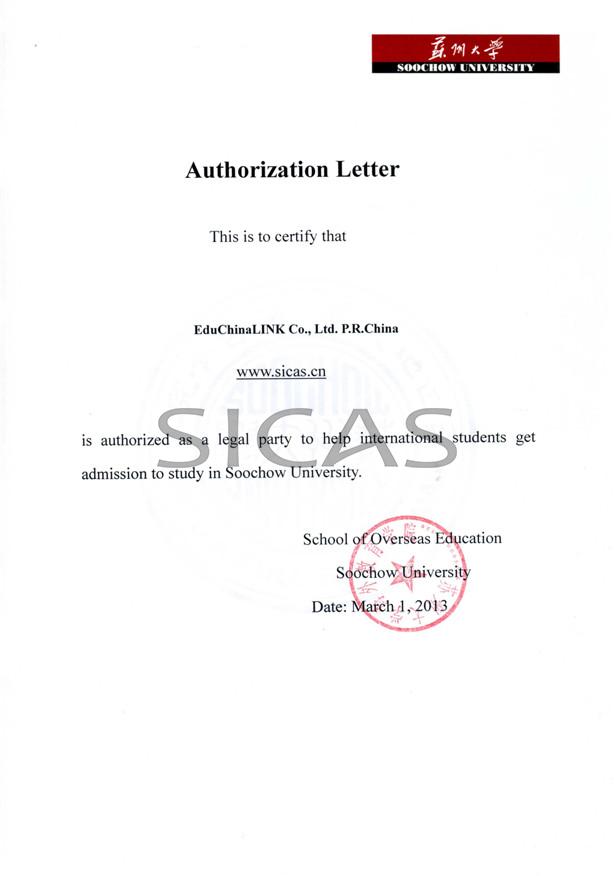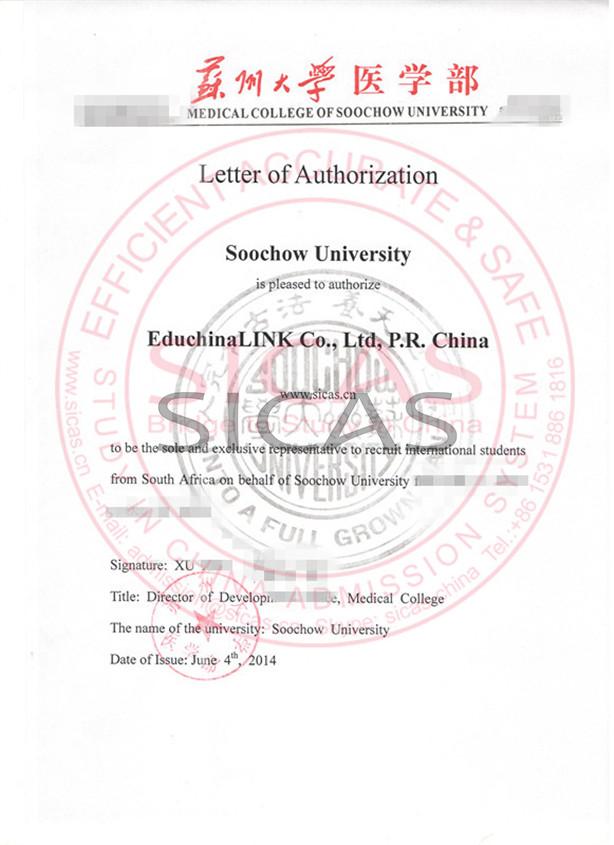

 |
Soochow UniversityLocated in Suzhou, an ancient city popularly called "the Paradise on Earth", Soochow University is a key comprehensive provincial university in Jiangsu Province and also one of China’s top 100 universities under the"Project 211"directed by the Ministry of Education. It was named after the city name Suzhou (spelt Soochow in the past) when founded in 1900, but according to the Pinyin spelling system it is now often written as Suzhou University (Suzhou Daxue or Suda in short). In 1952, the College of Liberal Arts and Science of Soochow University, Southern Jiangsu College of Culture and Education(which is composed of Jiangsu Provincial College of Education, National College of Social Education and Wuxi Junior College of Sinology)and the Department of Mathematics and Physics of Jiangnan University were merged into Southern Jiangsu Teachers’ College. Later in the same year it was renamed as Jiangsu Teachers’ College and its location was on the old campus of Soochow University. In 1982, under the approval of the State Council, Soochow University was reestablished to replace Jiangsu Teachers’ College. Then in the years of 1995, 1997 and 2000, under the approval of the Ministry of Education and Jiangsu Provincial Government, Suzhou College of Sericulture, Suzhou Institute of Silk Textile Technology and Suzhou Medical College were merged into Soochow University respectively. Better equipped and more robust, Soochow University has grown into a first-rate university in China, covering a wide range of academic disciplines including philosophy, economics, science of law, pedagogy, literature, history, natural science, engineering, agriculture, medical science and management science and enjoying a fairly high reputation both at home and abroad. Over the past 100 years, the university has turned out more than 300,000 qualified talents, many of whom are famous scholars or prominent figures in various fields, including former vice presidents of the Standing Committee of the National People's Congress (NPC) Xu Deheng, Zhou Gucheng, Fei Xiaotong, Lei Jieqiong, Sun Qimeng, former vice chairmen of Chinese People's Political Consultative Conference (CPPCC) Zhao Puchu, Qian Weichang, Dong Yinchu, famous scientist and Nobel Prize winner Li Zhengdao, famous jurist Ni Zhengyu, famous sericulture educationist Zheng Bijiang, famous brain surgeon and medical educationist Du Ziwei, Hong Kong celebrities Sir. Ti-liang Yang and Louis Cha, member of NPC Standing Committee and vice-chairman of Democratic Progressive Party Zhu Yongxin, deputy governor of Jiangsu Province Zhang Weiguo, former deputy secretary of Jiangsu Provincial Party Committee of CPC Gu Hao, deputy governor of Jiangsu Province Wu Xijun, former vice-chairmen of Jiangsu Political Consultative Conference Tong Fu, Zhou Sangyi, Lu Jun, and thirty-plus academicians of the Chinese Academy of Sciences and Chinese Academy of Engineering. At present, Soochow University runs twenty post-doctoral research stations, six Ph.D. programs of primary disciplines, eighty-five Ph.D. programs(including self-designed majors), one professional doctoral program of primary disciplines, 209 master’s degree programs(including self-designed majors), ten professional master’s degree programs as well as 108 undergraduate programs. In addition, the university has four national key disciplines, twenty-four provincial and ministerial key disciplines (including six incubators for national key disciplines), one national engineering laboratory, one incubator for national key laboratory, twelve provincial and ministerial key laboratories, and three provincial and ministerial engineering centers. It also houses one national base for training personnel in the basic disciplines of liberal arts, one national base for training personnel in the basic disciplines of natural science, one key research base of the Ministry of Education for humanities and social sciences and one key research base of the State General Administration of Sports for social sciences. The university has now about 50,000 students, including 12,744 postgraduates, 22,853 undergraduates and 9,010 adult education students. Among its 4098 faculty and staff members, four are full-time employed academicians (including one member of the Chinese Academy of Sciences who is also a member of the Third-World Academy of Sciences and three members of the Chinese Academy of Engineering), six are part-time employed academicians and 1,633 are full professors and associate professors.
|








